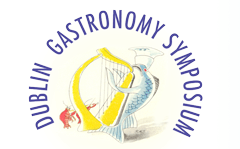Start Date
25-5-2020 5:15 PM
End Date
25-5-2020 5:30 PM
Description
The growing recognition of the environmental and health costs of the post-war industrial-production food model has led to urgent calls globally to transition to more sustainable food systems (Lang and Heaseman, 2004; Willet et al., 2019). Future fixes or ‘innovations’ that are disruptive to the current model of food production have been proposed to address the challenge of achieving such ‘Great Food Transformation’ (Willet et al., 2019, p.448). Such disruptions toward sustainability can include, for example, alternative food networks or short food supply chains, a turn (or return) to local food or ‘glocalism’, refocusing on small-scale farming, emphasising biodiversity and exploring under-utilised species, and embedding social and ethical values into food supply chains (Hankins J. and C. Grassini, 2014; Renting et. al. 2003; Sethi, 2015). Underlying some of these strategies is the somewhat paradoxical idea of ‘traditional-innovations’ or
or innovations based on traditional food practices – an idea born from the realization that future fixes to the food system need to be both technological and anthropological (Belasco, 2008). Some authors have even coined the term ‘traditiovations’ to capture this concept (Cannarella and Piccioni, 2011). This trend can be seen in a range of alternative food models, strategies and marketing of food products. Prominent examples range from the Slow Food movement, founded in 1989 by Carlo Petrini, which aims to protect and promote traditional and local foods, to the more recent popular phenomenon of the ‘Pasta Grannies’, who share their traditional recipes via social media (Bennison, 2019). National agencies and international organizations have also recognized the great potential of food traditions to contribute to the three fundamental pillars of sustainable food systems: economic development, environmental protection, and social well-being (FAO 2019).
DOI
https://doi.org/10.21427/7mq5-xv63
Included in
Cooperatives, Agri-Tourism and Food Trails: Promoting Sustainable Food Systems in Le Marche, Italy
The growing recognition of the environmental and health costs of the post-war industrial-production food model has led to urgent calls globally to transition to more sustainable food systems (Lang and Heaseman, 2004; Willet et al., 2019). Future fixes or ‘innovations’ that are disruptive to the current model of food production have been proposed to address the challenge of achieving such ‘Great Food Transformation’ (Willet et al., 2019, p.448). Such disruptions toward sustainability can include, for example, alternative food networks or short food supply chains, a turn (or return) to local food or ‘glocalism’, refocusing on small-scale farming, emphasising biodiversity and exploring under-utilised species, and embedding social and ethical values into food supply chains (Hankins J. and C. Grassini, 2014; Renting et. al. 2003; Sethi, 2015). Underlying some of these strategies is the somewhat paradoxical idea of ‘traditional-innovations’ or
or innovations based on traditional food practices – an idea born from the realization that future fixes to the food system need to be both technological and anthropological (Belasco, 2008). Some authors have even coined the term ‘traditiovations’ to capture this concept (Cannarella and Piccioni, 2011). This trend can be seen in a range of alternative food models, strategies and marketing of food products. Prominent examples range from the Slow Food movement, founded in 1989 by Carlo Petrini, which aims to protect and promote traditional and local foods, to the more recent popular phenomenon of the ‘Pasta Grannies’, who share their traditional recipes via social media (Bennison, 2019). National agencies and international organizations have also recognized the great potential of food traditions to contribute to the three fundamental pillars of sustainable food systems: economic development, environmental protection, and social well-being (FAO 2019).
